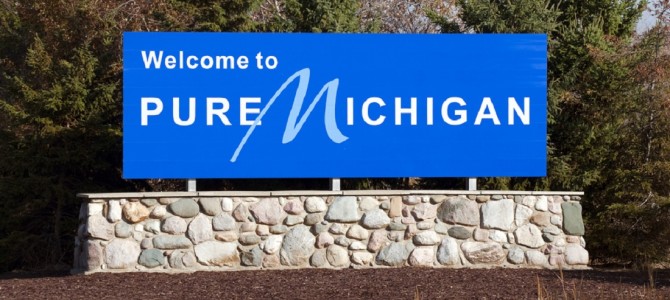
First, a few preliminaries. I no longer live in Flint, but in Minneapolis. That said, my parents lived there until recently, and I still have relatives in my hometown. Second, I see Michigan Gov. Rick Snyder as a pragmatic leader and not an ideologue, conservative but willing to work across party lines.
When my hometown of Flint makes the national news, it’s practically never good. Around the nation, folks recently learned that lead had made its way into Flint’s water supply. This was yet another black eye for a once proud and prosperous city that has had it rough recently.
The uproar over having contaminated water is understandable. No one wants something in the water that could harm children’s development. But what is interesting is how people are telling this story. While I do think the state of Michigan has some of the blame, activists, local and state leaders, and citizens tend to think the state and the governor are the true villains.
Hillary Clinton attempted to capitalize on interest in this with her closing statement in Sunday’s Democratic primary debate, saying, “The governor of that state acted as though he didn’t really care. He had a request for help and he had basically stone walled. I’ll tell you what, if the kids in a rich suburb of Detroit had been drinking contaminated water and being bathed in it, there would’ve been action.”
First, About the Emergency Manager Law
People are saying things like this because of the Emergency Manager (EM) law. Lawmakers enacted a version of it called Public Act 72 in 1990, and a revised version called Public Act 4 in 2011. Michigan voters repealed this version in 2012 (which then reinstated the old PA 72), and a subsequent law 436 was passed in 2012. The Michigan Department of Treasury has a good description of the law, but a fact sheet from the Michigan State University Extension sums it up perfectly:
If an EM is appointed, this person is authorized to act for and in place of the local governing body and administrative officer of the community. The governing body only retains any powers authorized by the EM. The EM has broad powers to resolve the financial crisis and insure the fiscal accountability of the community to provide services for the health, safety and welfare of its residents.
Because of its ability to sideline local leaders during a financial emergency, this law has caused a lot of opposition in-state and nationally. It doesn’t help that for a certain period the cities under an EM were majority African-American cities. I don’t think that was intended, but it is there. This was probably one of the reasons Snyder waited a bit before putting Detroit under an EM in 2013.
So a white Republican governor is using a law that temporarily sidelines local leaders on a majority African-American city. Yeah, the optics are bad, and the combination was a volatile mix ready to explode, and it did in Flint. So, did Snyder poison children? Is the EM law the reason we have this mess?
The media and others seem to place the blame there. My own answer is: I’m not sure. The decisions leading to the City of Flint using the Flint River as a main water source are not as clear as some would believe. My own look at the timeline tells me a number of steps led to the final decision, and at each point someone did something that led us down this road.
A Tragedy of Errors
A number of media outlets have said something to the effect that the governor put the city on Flint River water to save money. That statement contains two issues that need to be unpacked. The first is: Why would the city need to save money? The second question is: Why was the Flint River chosen as a water source?
The city needed to save money because, in 2011, the state declared a financial emergency in Flint. The governor appointed an emergency manager to right Flint’s economic ship for the second time in a decade. (Flint was also under an emergency financial manager from 2002-04.)
Flint has been an economic basket case for some time. Some of this is because of lost tax revenue—the closure of GM plants and loss of population meant less in the city’s coffers. Also, the people who were left were more than likely to be low-income, so again not a big chance for revenue.
The other problem is internal. Flint had started losing auto jobs in the 1980s, and they didn’t really plan for the day when the auto industry would not be such a major player. The other problem is that a lot of city functions were very inefficient. This 2011 study by Michigan State University explains this rather clearly. (The conservative Mackinac Center noted that the city dealt with rising employee costs in the late Aughts, even as revenue was slowing. I’m always a bit wary of providing info from partisan groups, so I only add with this disclaimer.)
So the emergency manager comes in to try to get Flint’s spending under control. This meant looking for places to save money. The most obvious was the water service.
For as long as I can remember, Flint has gotten its water from the Detroit Water and Sewage Department. Detroit has charged Flint fairly expensive prices for the service. Now, that is not a big deal when the coffers are full, but it is a challenge when the piggy bank is empty. I remember my parents telling me how much they paid monthly and it was much, much more than what my husband and I pay here in Minneapolis. So it made sense to look for a way to get water cheaply.
Between a River and a Hard Place
This is where most of the media get it wrong. Usually the story goes that the city began using the Flint River because it was cheaper than using Detroit’s water. It sounds like the emergency manager or governor just decided to use the river water. But that misses a step.
The Flint River was not the first choice. The emergency manager did meet with representatives from the state treasury and they talked about the river as a possible water source, but also of joining a brand-new water authority called the Karagondi Water Authority. In April 2014, the EM, with symbolic approval from the Flint City Council, moved to join this new body, which would draw water from Lake Huron. The pipeline was being built, and was slated to go online in 2016.
The day after the City Council vote, Detroit Water said it would end its contract with Flint in one year. This meant the city had to figure out what to do for water in that intervening year. Michigan Radio says Detroit didn’t cut Flint off, and that is somewhat correct, but it is also a bit odd that the day after a decision has been made to join a new water authority Detroit would conveniently tell Flint its contract ended not in 2016, but in 2015 when the pipeline would not yet be finished.
Now, at this point, Flint should have worked harder to secure a better deal with Detroit. But the fact remains that Flint was put in a tough spot. This is when they made the fateful decision to use Flint River water. The Flint River wasn’t the first choice, it was the backup choice.
Was this a good decision? Probably not. Anyone who lived in Flint knew the river was suspect because the auto plants had probably leached chemicals into the river. But it is important to know the city made this decision when a better option appeared closed.
The Feds Also Slipped Up
I’m not going to go into the whole drama concerning the Michigan Department for Environmental Quality (MDEQ)—I don’t feel comfortable wading into the science and don’t want to lead people astray.
That said, it is important to note that the federal government also had a role in the crisis. According to the Detroit News, the Environmental Protection Agency knew as early as April 2015 that the lack of corrosion controls used to treat Flint’s water could cause lead contamination. Instead of telling the public of their concerns or taking preventative measures, the EPA kept prodding the MDEQ to act. Miguel de Toro, a water expert with the EPA, reported concerns as early as February. His suspicions were confirmed in April, and in June he wrote a memo about the disaster. But even with all this information, the EPA did very little other than wrangle with MDEQ.
The water crisis is not simply about some evil, racist Republican who didn’t care about poisoning children. The governor does bear some responsibility—that I won’t deny. But the decision to use the river water was the result of smaller choices, not one master plan.
The fallout from the water crisis continues. Flint switched back to Detroit water in October. But the problem of lead is still an issue because of poor chemical control, which ate away at protective scales in the lead pipes. The current mayor of Flint, Karen Weaver, issued a state of emergency, which garnered national attention. This prompted Snyder to declare a state of emergency on January 5, followed by calling up the National Guard to distribute water and water filters on January 12.
A report from a committee Governor Snyder appointed came out in late December, which blaming MDEQ for its lax handling of the issue. The governor apologized to the citizens of Flint and met with Weaver to discuss how to continue to help Flint.
It’s easy to point the finger at one party. But the water emergency was the result of a lot of different actions. None of this means that no one is responsible. The state, in the form of MDEQ, is responsible. But this is the sad result of a declining industrial city with low tax revenue, a state bureaucracy too dismissive of the people it is supposed to serve, and outside government bodies that put the city in a hard position.
A lot of small mistakes led up to this disaster. It will take a lot of virtuous moves to help my hometown recover from this latest arrow of misfortune.
A version of this article originally appeared on Ordinary Times.









